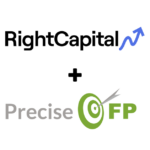Standing out to clients in a crowded field of financial advisors isn’t just about offering great service—it’s about knowing what truly sets you apart. The key is identifying what clients value most about you and your expertise. Holding informational meetings with your current clients can give you insight into why they seek your guidance, allowing you to lean into those strengths even more. Whether you’re a subject matter expert in working with certain professions or specialize in unique financial scenarios, it’s all about finding the fire and pouring gas on it. Here are three things that can make you stand out to clients.
Listening and Trust
Trustworthiness and good listening skills are among the top skills clients look for in an advisor. The two go hand in hand — clients are more likely to trust their advisor when they feel valued and listened to. They know their advisor understands their unique needs and will act in their best interest.
Every client is unique, but some advisors follow the same approach and make the same recommendations for every client, regardless of their lifestyle, financial situation, or goals. Great advisors stand out by listening to clients, building relationships, and delivering personalized recommendations and services.
Listening to clients helps them feel comfortable, especially when making major financial decisions. As advisors build trust, clients feel more free to ask questions and better understand the nuances of wealth management.
How can advisors build these skills? It starts with treating each client individually and taking time to get to know them before rushing into the investment process. Great listeners ask questions and take time to let the conversation flow. As advisors interact with clients and take an interest in their lives outside the office, they can build a trusting and comfortable relationship.
Going Beyond Financial Advice
It used to be that financial advisors were expected to stay in their lane and only make financial recommendations. However, as the markets and industry change, so do client expectations. One survey found that 71% of millennials and 57% of all respondents prefer to do most of their financial business at one institution that can bring together the specialists and services they need.
Advisors stand out when they take a holistic, comprehensive approach to advising, look at their clients’ whole lives and goals, and offer personalized services to meet their needs. Instead of only examining a client’s finances and deciding how much to invest, a holistic approach considers all areas of their life, including their family, career, and future goals. Simply put, holistic advising is about looking at more than just the numbers.
To offer more comprehensive, holistic services that appeal to clients, advisors can partner with outside firms to offer a broader range of services. More than just referring their clients to another type of advisor, they can work together through joint meetings or information sharing to create a comprehensive plan.
Advisors can also expand their knowledge with training and certifications in other areas, including legal issues, retirement questions, will and estate planning, multi-generational planning, emotional intelligence, and other services that can help them answer clients’ questions without sending them to another advisor.
Convenient Digital Platforms
Today’s clients are used to handling everything from their groceries to their email and travel reservations digitally, and they want that same convenience from their financial advisor. Clients increasingly want more digital access to their accounts and seamless integration into their everyday lives. When advisors and firms leverage digital tools, clients feel empowered to better understand their finances and how their accounts are progressing toward their financial goals.
Digital tools can take on many forms and impact all areas of the client experience, from connecting with advisors through video calls to managing their accounts and seeing progress on mobile dashboards. From the beginning of a client relationship, advisors can use digital forms to streamline onboarding and new account openings while reducing errors and compliance risks with manual data entry.
A wide variety of digital tools help advisors provide more personalized advice, such as running numbers when saving for retirement or quickly calculating how an investment decision will impact a client’s taxes. Whether advisors or clients utilize digital tools, clients can feel the difference in a technology-driven experience backed by the human connection with an advisor.
One of the best ways to set yourself apart is by leveraging technology to deliver consistent, high-level customer service. PreciseFP helps you with data gathering and allows you to scale as new business comes in. Start your free trial today at PreciseFP.com.






